Learn More About NASA eClips™
NASA eClips is a NASA-supported project that brings together exciting video segments and resources with educational best practices to inspire and educate students to become 21st Century explorers.
NASA eClips serves the national K-12 educational community by introducing students to science, technology, engineering, and mathematics (STEM) concepts and providing teachers with engaging resources and tools to support teaching and learning. Developed in 2008, NASA eClips offers free educational resources for teachers to use to complement their curriculum. Educational material for this program is selected based on national curriculum standards. The standards include:
- Common Core State Standards – Mathematics (CCSS-M)
- Next Generation Science Standards (NGSS)
- Standards for Technological Literacy [defined by the International Technology Engineering Education Association (ITEEA)]
- International Society for Technology in Education (ISTE)
The National Institute of Aerospace (NIA) works with NASA to continue to provide relevant and engaging science content and access to subject matter experts (SMEs). Though primarily developed with the formal K-12 classroom audience in mind, NASA eClips also provides resources to increase understanding of NASA science to lifelong learners, non-formal audience, and the general public. Professional development opportunities are delivered to demonstrate best practices using newly developed resources to address student misconceptions in science, as identified by national assessment sources.
Technical Advisory Board
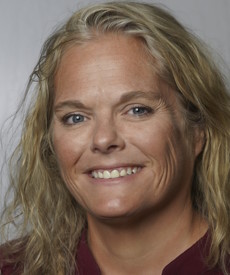
Dr. Lisa Brown
Associate Professor
Lisa is currently an Associate Professor in the Department of the School of Teaching and Learning at Sam Houston State University (SHSU) in Huntsville, Texas. Prior to joining SHSU, Lisa worked as an Aerospace Education Specialist at Penn State University and was assigned to the Educational Programs Office at NASA Johnson Space Center in Houston. She was responsible for conducting workshops for teachers and administrators in schools, colleges, and universities, as well as providing lecture demonstration programs for students. Lisa began her science teaching career in Alief Independent School District, working with at-risk students. She holds a Texas Composite Science Teaching Certificate for grades 6-12. She earned her doctorate in Applied Educational Studies - Aviation and Space Education, at Oklahoma State University, her Master of Education in Curriculum and Instruction at the University of Houston, and a Bachelor of Science in Animal Science from Texas A&M University. Lisa holds memberships in the National Science Teaching Association, Science Teachers Association of Texas, Texas Association for Environmental Education, Texas Earth Science Teachers Association (lifetime member). She is a Teacher Liaison for the Space Foundation, JPL Solar System Ambassador, NASA GPM Earth SySTEM Ambassador, CDC Science Ambassador Fellow, Aerospace Education Officer of the Civil Air Patrol in College Station, Texas, and is a Texas Certified Environmental Educator and a National Geographic Certified Educator.
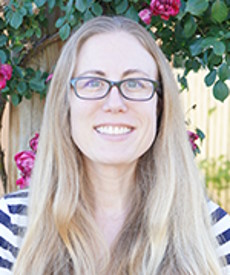
Dr. Misty Carty
Early Childhood Science Author
Misty has been a formal and nonformal science educator for over 20 years. She is a children's science author, having published three stories about observing the phases of the Moon, eclipses, and why we have seasons. She produces science storytimes and science activity videos, where she emphasizes learning science like a language. Before transitioning to early childhood education, Misty was a professor of Physics & Astronomy at McKendree University and Marymount University. Misty earned a bachelor's degree in physics from McDaniel College and a master's and Ph.D. in astronomy from the University of Maryland, College Park.

Dr. Martin Horejsi
Associate Professor
For over 20 years, Dr. Martin Horejsi has been working on the education/public outreach side of NASA and mission specific curriculum. Small bodies of the solar system are a specialty including comets and asteroids. Some of the more notable missions Martin has worked on include STARDUST, Deep Impact, Stardust NexT, Cassini, Mars Exploration Rovers, Mars Odyssey, Messenger, New Horizons, and the Deep Space Network communication system. Throughout that journey, meteorites were near and dear to his teaching, having been one of the main drivers for his creation of hands-on space science activities. Back when he was a high school Earth and Space Science teacher in Idaho, he received NASA Space Grant funding to create digital astronomy and space science lessons using the amazing technology of Windows 3.1 and a 20" computer monitor. From there, it went, quoting Buzz Lightyear, "To infinity and beyond!"
Drawing on an appreciation of the intersection of science, history, and space, it was only natural that meteorites became part of his approach to teaching across the science curriculum from biology, to physics to chemistry. Since 2002, Martin has been writing articles about meteorites and space science on the website Meteorite-times.com. Prior to that, he was a columnist in the journal Meteorite. In the science education realm, Martin wrote a column titled Science 2.0 in the National Science Teaching Association's (NSTA) publication The Science Teacher for years, as well as a blog column on the NSTA website in his role of lead technology reviewer. Martin was also a member of the NASA Educator Astronaut Selection Committee, a NASA Educator Fellow, and a Solar System Ambassador.
In 2007, Martin was part of a mission team that attended a gala at the Smithsonian's National Air and Space Museum to receive the Annual Achievement Award for the STARDUST Mission. He received the Nininger Award at the 2010 Tucson, Arizona Gem, Mineral and Fossil Show (the largest in the world) for his prolific writings about meteorites, and has been a frequent speaker at the National Science Teaching Association's national conferences.
Since 1997, Martin has been an instructor, lecturer, and professor at both Idaho State University, and the University of Montana, where he is currently on faculty in the College of Education. Teaching elementary and secondary science teaching methods, as well as instructional technology courses and graduate courses on technology integration in teaching. When he is not in his office, he might be trail running, mountain biking, backcountry skiing, paddleboarding or fly fishing "The river that runs through it."
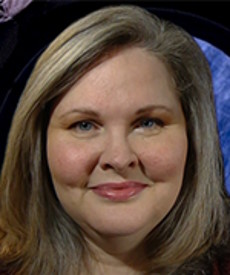
Stephanie McMahon
Formal/Non-Formal Educator & Accessibility Specialist
As a museum educator and accessibility and inclusion specialist, Stephanie led Space Center Houston's efforts to create an educational destination for people of all abilities to experience the wonder of human space exploration. Stephanie is a certified teacher and autism specialist with many years of experience in both formal and nonformal education. She used that experience to coordinate the Center's accessibility-focused initiatives and events, to collaborate with nonprofit organizations with unique needs, and to train employees and volunteers in best practices to welcome and accommodate people with a variety of abilities. Stephanie was named an Autism Warrior by Autism Parenting Magazine and earned the NASA Equal Employment Opportunity Medal for her work inspiring children with disabilities and connecting young adults with disabilities to the possibilities of careers in the world of aerospace engineering. Stephanie believes that STEM is a pathway open to everyone and that the sky is not the limit! Stephanie shares her time and expertise with Space Center Houston, the National Federation of the Blind, Houston Museum Education Network, Houston Museum Accessibility Network, American Alliance of Museums, International Society of Technology Education (conference presenter), Association of Science and Technology Centers (member and repeat presenter), and Space Exploration Educators Conference (member and repeat presenter).
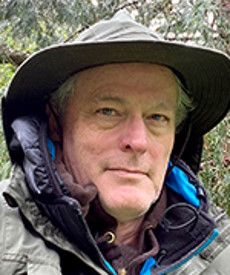
Patrick Neary
Fine Artist Using Both Traditional and Digital Mediums
Patrick holds a B.F.A. from the School of Art/Design at California Institute of the Arts (CalArts) and a master's degree in Digital Media and Learning from the School of Education at the University of San Francisco. His arc as an educator started at the college level, teaching computer graphics to adult learners who wanted professional careers in feature film production. He has taught maker-space innovation, technology, and digital literacy for K-8; and traditional fine arts, design, and digital arts at the middle and high school levels. Patrick has earned production credits on twenty-eight feature films, and is a long-standing member of the Visual Effects Society. He has deep interests in natural history and science, the diversity of living things, and the environment. As a member of the American Society of Primatologists he regularly presents research findings from his filmed documentation of the behaviors of captive great apes.
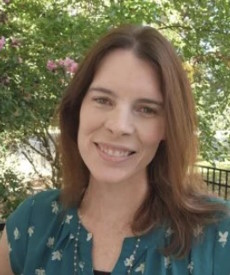
Suzanne Sprague
Founder of Virtual Science Teachers
Suzanne Sprague, founder of Virtual Science Teachers, holds a Chemistry degree from the University of Illinois and a Master's in Science Education from the University of Iowa. Her organization focuses on making STEM learning equitable by providing free, interactive online resources. With a background in teaching high school chemistry, physics, and online physical science, Suzanne is passionate about creating engaging and effective STEM learning experiences that are accessible to all students.
Educator Advisory Board
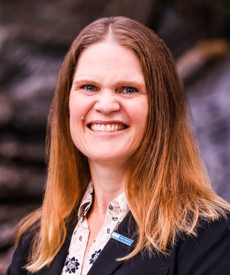
Jennifer Childress
Science Educator and Einstein Fellow
Jennifer received her Bachelor of Science in Physical Science from Humboldt State University in 1995. She is a veteran STEM teacher with 25 years of teaching experience in the state of Alaska. She recently returned to the classroom, after taking a two-year break from teaching, to teach all subjects to middle and high school students in the small community of Whittier, Alaska. Jennifer served as an Albert Einstein Distinguished Educator Fellow with the Department of Defense STEM Office from August 2022 to July 2023. Jennifer loves helping students realize their potential through connecting science to the world around them. As a result of her excellence as a science educator, Jennifer was honored to receive the Presidential Award for Excellence in Math & Science Teaching in 2017. She also serves as a NASA Airborne Astronomy Ambassador.
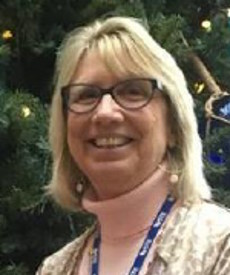
Judy Deichman
Instructional Specialist for School Libraries
Judy currently serves as the Instructional Specialist for School Libraries in Richmond City Public Schools in Richmond, Virginia. She is a National Board Certified Teacher in Library Media K-12. Judy holds a master's degree in education as well as a library endorsement from Longwood University. She has served as a librarian for 11 years and loves sharing resources and books with students. Her goal is to build a culture of reading and a love of literature. Judy is the President of the Virginia Association of School Librarians, and an active member of the American Association of School Librarians, American Library Association, Future-Ready Librarians, and the Virginia Society for Technology Education. She is the mother of 5 children and loves to garden and read in her spare time.
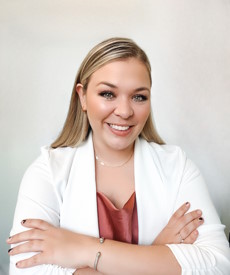
Kristen Duprey
STEM Education Specialist
Kristen currently serves as a STEM Education Specialist and Program Coordinator at the Virginia Space Grant Consortium (VSGC) in Hampton, Virginia. In this role, she oversees initiatives such as the Virginia Space Coast Scholars program and the Technology Exploration Saturday Series program, among others.
Before joining VSGC, Kristen worked as the STEM Curriculum Writer at the Virginia Air and Space Science Center, NASA Langley’s Visitor Center. Prior to that position, she accumulated seven years of experience teaching secondary education science and math in public schools. She has taught a range of subjects including biology, chemistry, pre-algebra, physical science, AP Biology, anatomy, and physiology, as well as various virtual STEM subjects.
Kristen holds a bachelor’s degree in biology, a master’s degree in STEM curriculum and instruction, and a second master’s degree in education leadership, all earned from George Mason University. She possesses a current Admin and Supervision PreK-12 license, as well as a Biology license in the state of Virginia. Additionally, Kristen holds a General Science secondary education certification in the state of Rhode Island.
In her commitment to advancing STEM education, Kristen actively participates in the community, serving as a member of the Newport News STEM Advisory Board and volunteering in various capacities. Through these efforts, she aims to inspire students of all ages by sharing her passion for STEM and NASA.
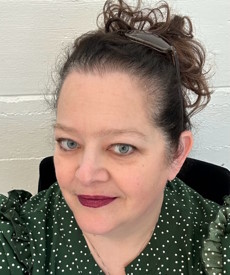
Heather Grimaldi
Museum Educator
Heather is the Programs Manager for Discovery Cube LA in Sylmar, Ca. She recently joined the science center in May of 2023. Her role involves overseeing the programming for the permanent and travel exhibits at the center as well as additional programming that complements those exhibits. Previously she was the Education Programs Manager at Kidspace Children's Museum where she developed field trip, Girl Scout, early learner, after school, and camp programs. Prior to coming to the Museum, Heather worked in formal education classrooms for more than 20 years. She has taught preschool, served as a classroom aid for kindergarten through second grades, taught 5th and 6th grade science, and spent her last nine years working with special needs preschool students. Heather is a member of the Southern California Informal Science Educators organization. She and her husband both grew up in Los Angeles county where they have raised their two children.
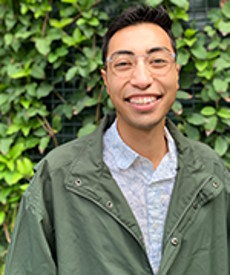
Jonathan Ishii
Elementary and Middle STEM Teacher
Jonathan is a proud first-generation college graduate who earned his bachelor's degree from Loyola Marymount University. He went on to receive a master's degree in education from Santa Clara University School of Education & Counseling Psychology. Jonathan currently serves as a fifth-grade and middle school STEM teacher in San Jose, California. He enjoys being active, coaching, amplifying student learning, and supporting other teachers with technology education training. Jonathan is an active member of Kappa Delta Pi International Honor Society in Education, Santa Clara University School of Education and Counseling First-Gen Teacher Network, and Nearpod Educator Network. Outside of the classroom, he enjoys cooking, sports, hanging out with friends, traveling, and going on new hikes and adventures.
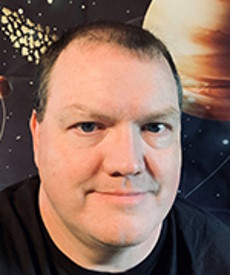
Steve Jones
Middle School STEM Teacher
Steve has been in education for 18 years and has taught students from age 3 to 11th grade. He earned a B.A. in Psychology from Berea College and an M.A. in Teaching from Brenau University. Steve currently teaches Physics and Scientific Research at FCS Innovation Academy HS, a STEM/Magnet High School in Alpharetta, GA. Previously he taught STEAM/Science Enrichment at Hopewell Middle School in Milton, Georgia. He also served as a Principal Investigator with Magnitude.io on their Exolab 8 experiment which flew to the International Space Station in February 2021. Steve's students have engaged in several project-based learning activities including Exolab-6 and 7, Leguminaut Challenge, Growing Beyond Earth, Tomatosphere, and the Space Chile Pepper Challenge. In addition to inspiring kids in the classroom, he is also a NASA/JPL Solar System Ambassador, bringing his love of science to the community through presentations at schools and libraries. He is certified by Johnson Space Center to obtain and use their Lunar Sample and Meteorite Sample Disks. Steve enjoyed presenting a session on using coding and droids in the classroom at the 2019 Star Wars Celebration convention in Chicago. He served as Scoutmaster for his son's BSA troop and is a merit badge counselor for Space Science and Astronomy. In 2012, Steve was awarded the Teacher of the Year award for Abbotts Hill Elementary.

Leslie Kneipfer
Middle School Science Teacher
Leslie has spent her career as a STEM or science teacher. She currently serves as a science teacher at Raynham Middle School in Raynham, Massachusetts. Her students use a problem-based learning approach that requires applying science concepts as they construct, test, and evaluate the products they design. Just as in professional engineering, her students' learning is iterative in nature – they learn from what doesn't work, then go back and redesign. Leslie loves watching the gears turn as her students brainstorm and tinker to find ways to make their designs better. Leslie is a Captain in the Civil Air Patrol where she is a member of the emergency services flight crew. She also serves as the External Aerospace Education Officer for the state, providing aerospace education resources to students and teachers across Massachusetts. She was awarded the National Aerospace Education Officer of the Year award in 2022. Leslie holds degrees in Education, STEM, and Engineering Education. She loves all things space-related and has wanted to be an astronaut since sixth-grade when her teacher, Mr. Fandel, first rolled the TV into the classroom to watch shuttle launches.
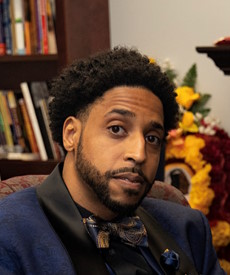
M. Isaiah Marriner
High School Science and Technology Teacher
M. Isaiah Marriner is the Director of FIRST Robotics Competition for VA, MD, &
DV, where he fosters student engagement with STEM through hands-on learning.
With over seven years of experience in education, he has worked to empower
students by developing science curricula and providing mentorship as a robotics
coach.
Isaiah began his education career as a STEM teacher at Churchland High School in
Portsmouth, Virginia. There he taught Honors Physics, Principles of Technology,
& Engineering Design. He also coached the FIRST Robotics Competition team, Royal
Robotics 3359. Before transitioning into education, Isaiah earned a B.S. in
Mechanical Engineering and a minor in History from North Carolina A&T State
University. His shift from engineering to teaching was driven by his passion for
helping others grow and his belief that “charity starts at home,” motivating him
to return to his hometown to make an impact.

Shelly Munoz
Middle School Science Teacher
Shelly has been a science educator for over twenty years, primarily as a middle school science teacher. She earned her master's degree in science education at California Baptist University. Shelly is passionate about education and currently teaching at Pierz Healy High School in Pierz, MN. In addition, she serves as a STEM consultant and is founder of a non-profit organization that holds summer STEM camps for underserved youth around the world. Shelly is a space and brain research enthusiast and loves to instill the joy of lifelong learning in her students. She is a NASA Solar System Ambassador, MAVEN Ambassador, and Heliophysics Ambassador.
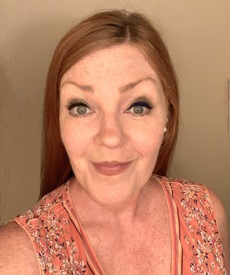
Roni Pavick
Elementary and Middle School Art, STEAM and Astronomy Teacher
Roni is an interdisciplinary educator with over 30 years of teaching experience, both nationally and internationally. She teaches art, astronomy, and STEAM at the Lyon K-12 School in Boston, Massachusetts. As an interdisciplinary educator and a creative curriculum designer, she helped to develop a STEAM program for Boston Public Schools.
Roni holds a Bachelor's in Education from Florida State University, with Master's studies in Education from the University of Oxford. She is currently getting her Master’s in Education Leadership from Harvard University. She also partners with the Harvard-Smithsonian Center for Astrophysics, teaching astronomy and leading a youth astronomy network program.
Roni shares her time and expertise as a NASA/JPL Solar System Ambassador. She enjoys creating joyful learning opportunities in which students can be creative and innovative, while developing their critical thinking skills and a lifelong love of learning.
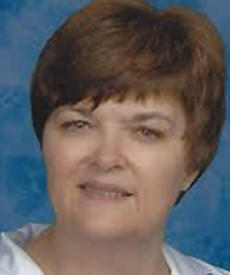
Melissa Sleeper
Middle School Science and Robotics Teacher
Melissa is a Nationally Board-Certified Science Teacher at Holy Trinity Episcopal Academy in Melbourne, Florida. She has a Bachelor of Science degree in Agriculture Economics from the University of Maryland, a Master of Arts in Teaching from Johns Hopkins University, and a master’s degree in educational leadership from George Mason University. An active member of the National Science Teaching Association (NSTA), she has served on a number of NSTA Committees and Advisory Boards including: The Advisory Board for Science and Children; the Preschool and Elementary Science Committee; the NSTA Special Needs Advisory Board; the Aerospace Advisory Board; and the International Advisory Board. Currently, she is on the Outstanding Science Trade Books Panel. In addition, she serves on the Board of the Florida Science Teachers Association (FAST). She is the K-12 STEM Officer for the Cape Canaveral Section of the American Institute of Aeronautics & Astronautics (AIAA) and the AIAA Region II Assistant Deputy Director for STEM. Melissa is an Education Ambassador for NASA’s MAVEN program and as a NASA/JPL Solar System Ambassador.

Mellissa Smith
Online ESL Teacher and Homeschool Educator
Mellissa is a homeschool teacher and mentor with the Homeschool Legal Defense Association. She has served as a homeschool teacher for almost 20 years, with a specialty in curriculum design. Mellissa holds a B.S. in Anthropology with strong emphasis in science, with TESOL and Oxford Certifications. Prior to her current position, Mellissa served as the Director of Children’s Programs and Children’s librarian for a local library, where she created STEM curricula for the area’s youth. Mellissa specializes in curriculum design and education ranging from preschool to early-tertiary levels. Mellissa served as a teaching assistant in social and behavioral science at the U of U. Mellissa has taught homeschool co-op classes in science, Algebra, and English in Utah, Idaho, Nevada, and Illinois. In addition, she worked as a contractor with her local government on the advancement of rural economics and environmental impact projects, collaborating with city, county, and state programs. Mellissa also collaborated with private global organizations as an applied anthropologist, specializing in potential unforeseen consequences of their global development programs. She enjoyed her work as a lab assistant at the Biological Anthropology Stable Isotope Facility in Salt Lake City, processing materials for the Smithsonian Institution. Mellissa has a passion for aerospace, education, and lifelong learning and is currently partnered with her local library, hosting events regarding NASA’s research, missions, launches, and projects, in her role as a NASA/JPL California Institute of Technology Solar System Ambassador.
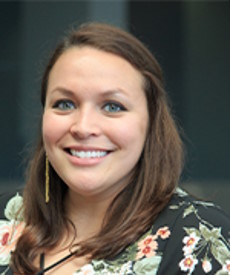
Amelia Tangeman
Educator NASA Nebraska Space Grant
Amelia is a nonformal educator for the NASA Nebraska Space Grant, located at the University of Nebraska at Omaha. She holds a master's degree in elementary education with a concentration in STEM education and has previously taught 3rd and 4th grade for Omaha Public Schools. Serving in the interconnected roles of classroom teacher, museum educator, STEM outreach coordinator, adjunct professor in teacher education, and educator with the NASA Nebraska Space Grant has shaped Amelia as an educator. She has participated in numerous NASA educator professional development experiences, including NASA's Pre-Service Teacher Institute in 2010 at Johnson Space Center and the U.S. Space and Rocket Center's Space Academy for Educators in 2011. She participated in the 2013 NASA Spaceflight Explorers cohort, and the Liftoff Summer Institute in 2015. In addition, she is also a NASA Solar System Ambassador, NASA MAVEN Educator Ambassador and NASA Heliophysics Educator Ambassador.
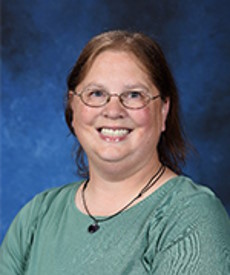
Jessica van Son
Middle School Special Education Teacher
Jessica is a special education teacher at Cascade Middle School in Longview, Washington where she teaches English Language Arts, Math, and Social Emotional Skills. She holds a B.A. in Special Education and a M.A. in Instructional Technology. She has 30 years of experience working with exceptional learners. Jessica incorporates engineering and technology into her lessons because she believes all students should have access to STEM education. She strives to create a cross-curricular approach to learning that engages students through hands-on interactive learning. Jessica is a member of the National Education Association and other professional organizations that promote excellence in teaching and learning. While she has been recognized as an outstanding educator by the American Institute of Aeronautics and Astronautics (AIAA), Jessica's biggest reward is seeing that "ah-ha" moment in a student's eyes when he or she grasps a concept. In addition to her work in the classroom, Jessica has had the opportunity to travel throughout the United States and the United Kingdom to attend and conduct professional learning experiences that further STEM education. When not teaching, she enjoys reading, playing multiple musical instruments, and singing.
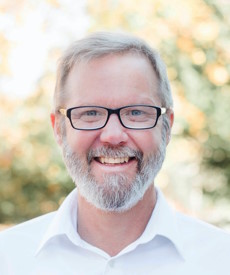
Dan Vasen
Elementary Principal
Dan is the Applied Programs Administrator of the Oregon Charter Academy, a virtual public school in Oregon. He holds a master's degree in teaching from Lewis & Clark College and a bachelor's degree in aquatic biology from the University of California at Santa Barbara. He has served as one of the administrators at Oregon Charter Academy for the past 10 years where he is currently providing high school students with authentic career and technical education opportunities through the ASCEND Career and Technical Education Program. Dan also manages Oregon Charter Academy's student government and extra-curricular clubs including a robust NASA club and coding club for STEM enrichment. Prior to serving in an administrative capacity, Dan excelled as a high school science teacher for over 20 years. He has an interest in all STEM-related fields. Dan is also an Educational Ambassador for the ARISS program connecting students with ISS astronauts via Ham radio.
Frequently Asked Questions
-
How can NASA eClips™ enhance my students' learning experience?
The video format arouses students' curiosity and encourages them to ask their own questions. By piquing student interest, NASA eClips™ encourages students to explore new topics on their own. Video segments can be used to determine students' depth of understanding. Students can produce their own NASA Spotlite video segments to demonstrate their understanding of science concepts gained during the production process.
-
How do I get these resources?
Teachers, non-formal educators and families can access all NASA eClips™ products on the Internet. Video segments are available at the NASAeClips YouTube channel. Video segments with additional teacher materials and program information are available at NASA eClips. To learn more about the Spotlite student production challenge, email the NASA eClips team through the Contact Us link.
-
Do I need to register to use these resources?
Registration is not needed to use NASA eClips™ materials. Materials are available on demand and free of charge to anyone with Internet access.
-
How do I use these resources with my students?
Educator Guides utilizing NASA eClips™ related activities and educational best practices are available on the resources page. New educator resources will be developed throughout the school year to accompany the video segments.
Awards
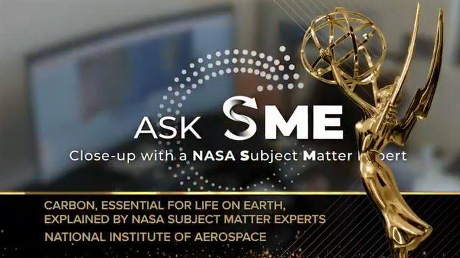
2019 National Capital Chesapeake Bay Emmy Awards: Informational/Instructional feature/segment/series. National Institute of Aerospace, "Carbon, Essential for Life on Earth, Explained by NASA Subject Matter Experts."
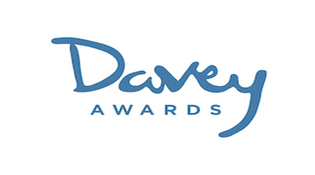
2012 Davey Silver Award: In the educational category for the episode "Real World: NASA Harnesses Half-Life"
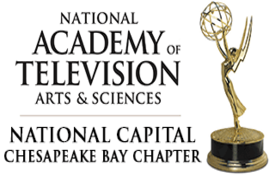
2009 National Capital Chesapeake Bay Emmy Awards: Informational/ Instructional feature/segment. National Institute of Aerospace, NASA Launchpad.
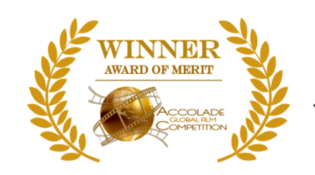
The Accolade Video Awards: 2009 Award of Merit - Videography. National Institute of Aerospace, NASA Launchpad: Launch/Abort System, government/social agencies.
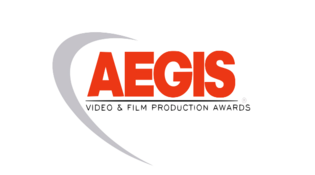
2009 Aegis Awards: Aegis Video and Film Production Awards. National Institute of Aerospace, NASA Launchpad.

2009 W3 Award: National Institute of Aerospace, NASA Launchpad: Fluid Dynamics - What a Drag!, writing category.
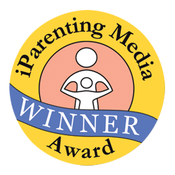
iParenting Media Award: 2009 Outstanding Television Product. National Institute of Aerospace, NASA eClips™.
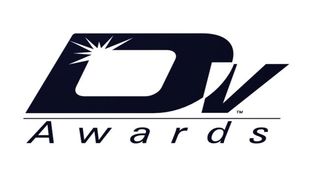
Spring 2009 DV Awards (2 awards): National Institute of Aerospace, NASA Launchpad: Fluid Dynamics; National Institute of Aerospace, NASA Launchpad: Launch Abort System and g-Forces. An international competition recognizing outstanding achievement in digital video.

